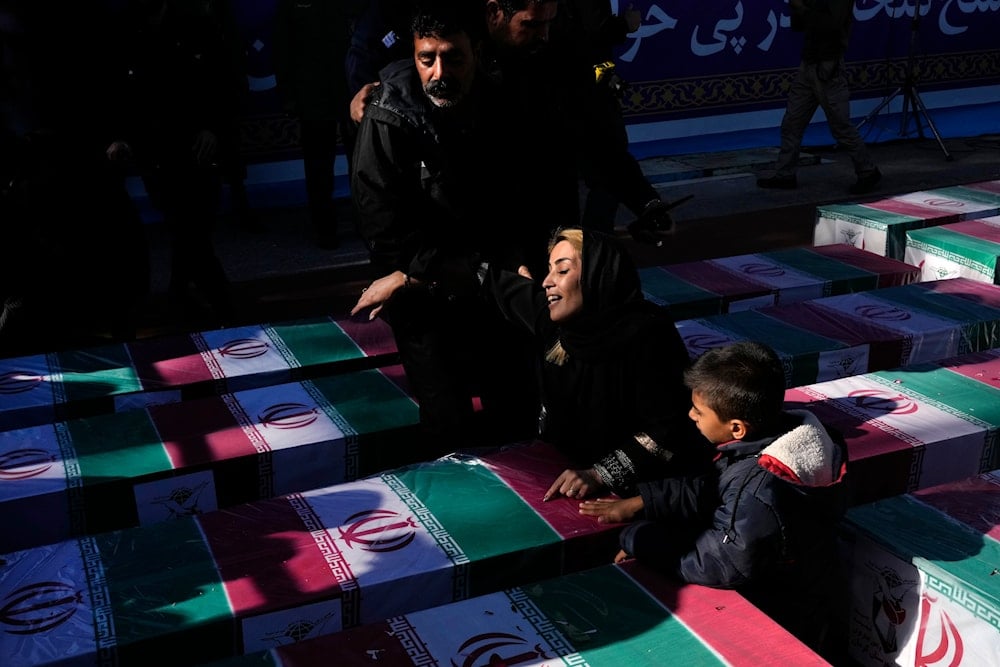Iran to hold funerals for commanders, scientists killed by 'Israel'
The ceremonies will honor top Iranian commanders and scientists killed during the 12-day war, including IRGC chief Hossein Salami, as the nation mourns.
-

A woman mourns over the flag-draped coffin of her loved one who was killed in a bomb explosion, during the victims' funeral ceremony in the city of Kerman, about 510 miles (820 km) southeast of the capital Tehran, Iran, on January 5, 2024. (AP)
Iran will hold official state funerals this Saturday for a number of senior military commanders and leading scientists who were killed during the recent 12-day war with "Israel," according to state media.
“The national funeral ceremony for... commanders and scientists martyred in the Zionist regime's aggression will be held on Saturday from 8:00 am (0430 GMT) in Tehran,” the state-run IRNA news agency announced Wednesday. The announcement comes just one day after a ceasefire agreement went into effect.
The planned ceremony underscores the scale of losses suffered by Iran during the war, which included not only military personnel but also key figures from the country’s scientific and strategic sectors.
IRNA also reported that Major General Hossein Salami, commander-in-chief of Iran’s Islamic Revolutionary Guard Corps (IRGC), who was killed on the war’s opening day, will be laid to rest on Thursday in his hometown in central Iran.
The funeral ceremonies are expected to draw large crowds and high-ranking officials, underscoring the profound national significance of the martyrdom for both Iran’s leadership and its people.
Pezeshkian hails Iranian people as architects of 'historic victory'
Victory was achieved by the people’s determination, Iran’s President Masoud Pezeshkian declared on Tuesday, emphasizing that Iran’s power will continue to promote peace and peaceful coexistence with neighboring countries.
In a message addressed to the Iranian people, President Pezeshkian declared, "This historic victory is owed entirely to the great Iranian people, the makers of civilization and history," while emphasizing that "the ceasefire and the end of the 12-day war came after the valiant resistance of the people."
"This war was imposed upon our people, born of the reckless adventure and incitement of the Zionist entity," Pezeshkian affirmed, noting that "the world bore witness to the great power of Iran, embraced by the support of its people."
He further stated, "The side that imposed this war is a terrorist enemy, yet Iran is the side that defined its end with the will and strength of its great and glorious people." The Iranian president noted that the timing of "Israel's" terrorist attack, under weak and depleted pretexts, overlapped with Iran's ongoing diplomatic efforts to address potential public misconceptions.
Pezeshkian pointed out that "Iran was present at the negotiating table, and the world witnessed its adoption of a firm position and consistent decisions," while asserting that "history will not forget how Iran’s enemies broke their pledges and agreements, resorting to aggression and invasion even during negotiations."
The Iranian president further stressed that the government's efforts would focus on reconstruction and compensating victims by identifying both strengths and weaknesses in their approach, emphasizing the continued work to restore normalcy throughout the country.

 3 Min Read
3 Min Read










